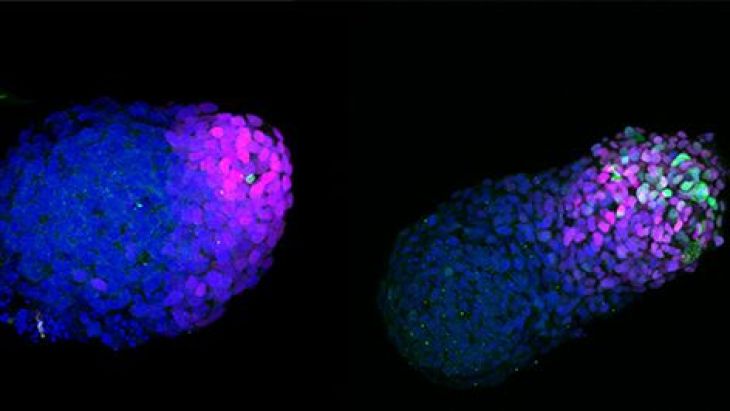The University of Cambridge, in partnership with the Progress Educational Trust, has led work to create the first ever UK guidelines for the generation and use of stem cell-based embryo models in research.
The guidelines were developed by a Working Group of experts from a range of institutions across the UK, representing world-leading expertise in sciences, law, ethics and regulation.
Stem cell-based embryo models (SCBEMs) are three-dimensional biological structures that mimic aspects of early human embryo development. They can be created in the lab from stem cells, and can provide new insights into critical stages of early human development that are normally inaccessible to researchers.
Embryo model work is expected to lead to new interventions for a range of conditions, including revolutionising treatments for recurrent miscarriage, understanding developmental disorders and improving the success rate of IVF.
Although embryo models are not the same as human embryos, they mimic aspects of early human development - and this has raised ethical concerns.
The previous lack of a regulatory framework for the use of SCBEMs in research has left scientists and research organisations uncertain about the acceptable boundaries of their work, both legally and ethically, and unsupported in their decision-making. Signing up to the SCBEM Code of Practice will remove these obstacles.
The guidelines, released today, provide the first code of practice for the use of stem cell-based embryo models in the UK.
“The new Code of Practice provides processes for decision-making in research using stem cell-based embryo models so that scientists can proceed confidently, while maintaining public trust in this vital area of research.”
Kathy Niakan, Chair of Cambridge Reproduction and Professor of Reproductive Physiology at the University of Cambridge, and member of the SCBEM Code of Practice Working Group.
“We are confident that the Code will enable the UK to continue to lead the world in research into early human development, while ensuring that this research is ethically robust.”
Professor Roger Sturmey, Professor of Reproductive Medicine at Hull York Medical School and Chair of the SCBEM Code of Practice Working Group.
















